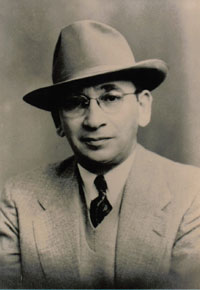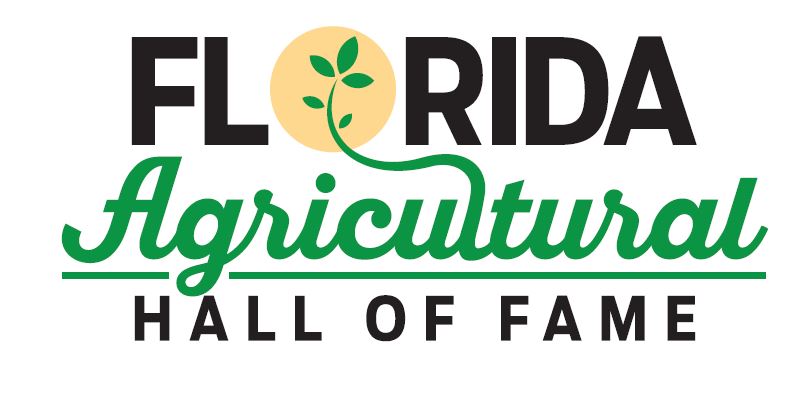
Albert Greenberg was the founder of Florida’s $60 million aquaculture industry, the first person to successfully open and operate a tropical fish farm and aquatic plant nursery in the state. He was the first in Florida to raise tropical fish in dirt ponds and aquatic plants in concrete vats. Thanks to these innovations, an industry was born.
Greenberg is remembered for his pioneering creativity, his extraordinary drive to succeed, and his generous philanthropy. He mentored many young aquaculturists, offering wise advice—and free fish and plants to help them get started.
Albert Greenberg came into the world in 1896 aboard a British ship in the Black Sea and was registered as a U.S. citizen at the American Consulate in Odessa, Ukraine. He was raised in a family of avid gardeners, and his father was a fish farmer. He attended public school in Chicago. When World War I broke out, Albert dropped out of the University of Illinois to enlist in the Navy. After the war he became a traveling salesman, which led him to Florida.
He figured that with its mild climate and abundant water, Florida would be the perfect place to raise fish and plants for the burgeoning aquarium industry. Greenberg went hunting around Tampa for property and discovered just the spot to start a tropical fish farm: 80 acres with 11 crystal-clear, free-flowing springs to serve as his water source. He called the place Eureka Springs.
By 1930 he had opened Everglades Aquatic Nurseries at Eureka Springs and was digging fishponds by hand. He saved up his money and soon bought a mule to help him dig ponds. And he built greenhouses with concrete tanks to house both plants and fish. In his outdoor ponds, he raised blue, black, red, and gold platies; green and gold swordtails; paradisefish; rosy barbs; and black mollies, among others. His indoor tanks included Buenos Aires tetras, Siamese fighting fish, and dwarf and thick-lipped gouramis. He traveled around the world collecting beautiful and unusual aquatic plants to propagate and sell: Amazon swords, Madagascar lace plants, eel plants, and many species of Cryptocoryne.
Greenberg had an innate talent for marketing and used it to drum up demand for fish and aquarium plants in the northern states—and he made it known that Florida was the place to purchase these items. Until Greenberg started his nursery, the aquarium industry was supplied nearly entirely by fish and plants imported from the Tropics.
Greenberg introduced many new varieties of aquatic plants to the aquarium hobby, including hybrids he developed on his own farm. In addition, he developed new, more efficient shipping procedures for aquaculture products.
Greenberg’s collection of rare fish and plants drew botanists and ichthyologists from around the country; they found the nursery to be an ideal laboratory. He even built a special guest house on the property to accommodate the scientists during extended visits.
Greenberg never married or had children, but he loved his employees like family. When he retired, he gave his business and a large portion of his property to five of his longtime employees, fish and plant specialists who had been with him for decades.
He donated another portion of his land, 31 acres including the 11 springs, to Hillsborough County for a public park and botanical garden. Over the years he had filled this area with exotic plants, creating a beautiful, rainforest-like garden for his own enjoyment. Today, Eureka Springs Park remains a haven for unusual flora. It boasts the largest public collection of ferns in the state, rare varieties of bromeliads and orchids, an extensive trail system, and a 1,700-foot boardwalk.
Albert Greenberg died in 1993, leaving no descendents but an entire industry to remember him. He was the first person inducted to the Florida Tropical Fish Farms Association Hall of Fame, and many plant varieties are named for him.
